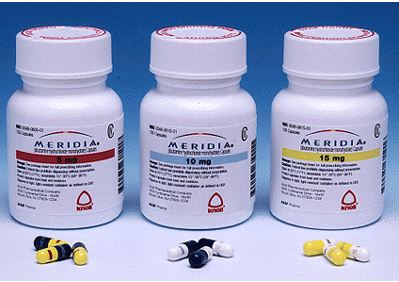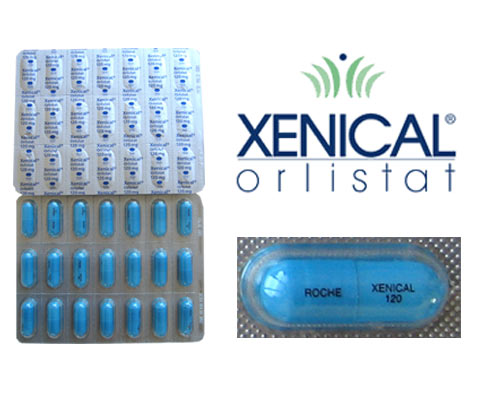Prescriptions for Weight Loss

PRESCRIPTION WEIGHT LOSS DRUGS
Let’s face it: America is overweight. Well, at least 66% of us, according to information from the National Institute of Health. If you are a man, the number is nearly 73%. Therefore it should be no surprise that weight loss products amount to a $40 billion dollar industry in the U.S!
What about prescription drugs for weight loss? One would think there must be dozens of options given that obesity has escalated to near epidemic proportions in our country. The fact is that there are currently very few prescription drugs on the market in the U.S. for weight loss. That may change in the near future, as several drugs are nearing the approval point with the FDA. But until that happens, we basically have 3 prescription drugs available for the treatment of obesity. In this article I will briefly discuss each of these 3 drugs. In doing so, I am not suggesting that the solution to the weight loss problems resides within the power of a pill. Not at all. I do, however, want to provide some accurate information for those who are exploring medication treatments and alternatives to help them lose weight.
The 3 prescription drugs currently available for weight loss are:
- Phentermine (Brand names: Adipex-P or Ionamin)
- Sibutramine (Brand name: Meridia) - REMOVED FROM MARKET (see below)
- Orlistat (Brand name: Xenical)
NEWS BRIEF: As of October 2010 Meridia is NO LONGER available. The FDA has withdrawn Meridia from the market due to safety concerns. Read about it HERE.
I will provide some basic information about each of these drugs, and provide a brief glimpse at a couple prescriptions for weight loss that are due to be approved shortly.
CALCULATE YOUR BMI: Since some weight loss prescriptions require a BMI (Body Mass Index) over 30...here is a BMI CALCULATOR provided by the fine folks at the CDC (Center for Disease Control).


PHENTERMINE
Phentermine was introduced to the U.S. market back in the early 1970s. It suppresses the appetite by stimulating the release of norepinephrine in the brain. The release of norepinephrine causes a cascade of responses in the body and is one of the chemicals responsible for the "fight or flight" response we experience when danger is perceived. As a side note, banana peels have significant amounts of norepinephrine in them. So if you can't get a prescription for this....well...on second thought maybe you should just stick with the pills.
Phentermine is similar to the "amphetamine" family of prescription stimulants (often used to treat conditions like ADHD). Phentermine is considered a "controlled substance" (Schedule IV) and as such has some potential for addiction and abuse. Controlled substances also have restrictions on the number of refills and quantities which are allowed on your prescription.
DOSAGE FORMS AND STRENGTHS:
- Adipex-P: 37.5mg capsules or tablets (also available generically)
- Ionamin: 15mg & 30mg capsules (also available generically)
DOSAGE AND ADMINISTRATION:
How are these pills taken? The 37.5mg dosage is intended to generally be taken once daily in the morning before breakfast (or 1-2 hours after breakfast). I suggest getting the tablets, as you can then break them in half and take a smaller dose if you prefer. Sometimes people find they do better with a 1/2 dose early in the morning, and another 1/2 dose at mid-day. Do not take doses in the evening, as they will likely cause insomnia.
The 15mg and 30mg capsules are also intended for once daily administration. They should be taken before breakfast, or at least 10-14 hours prior to bedtime.
Phentermine is not recommended for individuals less than 16 years of age.
DOES IT WORK?
That, of course, is the million dollar question. According to a 2005 study in Korea, the answer is "Yes." Participants in the study lost more weight on phentermine than on a placebo. However, a couple facts should be kept in mind...before you go running to your doctor for phentermine.
- Phentermine is intended only for those with a BMI (body mass index) over 30. In other words, it is not prescribed for those who only need to lose a few pounds.
- Phentermine is approved for short-term use only (a few weeks). In general, it should not be used for longer than a month. However, if used for even a few weeks, this may be long enough to train your mind and body to be comfortable with smaller portions and smaller meals. One reason for using it only on a short term basis is that tolerance to the appetite suppressing effects develops rather quickly, and increasing the dose does not help and is not recommended.
BUT WASN'T PHENTERMINE A PART OF THE DANGEROUS FEN-PHEN DIET?
Yes. Back in the 1990s doctors were prescribing a combination of phentermine along with fenfluramine (Pondimin) or dexfenfluramine (Redux). This combination was known as the Fen-Phen diet. However, studies began to show serious problems with the fenfluramine and dexfenfluramine ingredients. These included pulmonary hypertension and valvular heart disease. In 1997 Pondimin and Redux were withdrawn from the market. Phentermine, however, has never been shown to cause either of those problems and continues to be available today.
SIDE EFFECTS AND OTHER NOTES:
Some side effects which might occur while taking phentermine include: rapid heart rate, a rise in blood pressure, insomnia, headache, dry mouth, constipation and restlessness. Any difficulty in breathing should be immeditely reported to your doctor. Never increase the prescribed dose of phentermine. Avoid using alcohol in combination with phentermine.

SIBUTRAMINE (MERIDIA)
NOTE: I am leaving the information here about Meridia. However, as of October 2010 it is NO LONGER available. Read about the FDA withdrawl by CLICKING HERE.
Meridia (sibutramine) is a brand-name prescription medication manufactured by Abbott Laboratories and approved by the FDA back in 1997. Like phentermine, sibutramine suppresses the appetite. However, the way it does so is slightly different. Sibutramine is actually very similar to certain medictions in the "antidepressant" family and works by influencing levels of serotonin, norepinephrine and dopamine. This similarity might explain why certain antidepressants, like Effexor XR, have been known to produce weight loss in 3% to 7% of patients being treated for depression. Hmmm. Meridia, however, has not been shown to be effective in treating depression.
DOSAGE FORM AND STRENGTH: Meridia is avaiable 5mg, 10mg, and 15mg capsules.
DOSAGE AND ADMINISTRATION: Meridia is taken once daily in the morning, with our without food. The starting dose is 10mg daily. Those unable to tolerate 10mg, due to side effects, can be prescribed 5mg. The dose may be increased to 15mg if necessary. Meridia is recommended for those with a BMI over 30, or for those with a BMI over 27 if you have other medical conditions and risks (e.g. diabetes or high blood pressure). Unlike phentermine, Meridia is approved for the "maintenance" of weight loss also. This means it can be safely used for more than a few weeks, although benefits beyond 2 years have not been evaluated.
DOES IT WORK? As with phentermine, I think the answer is "yes." Numerous studies comparing people on placebo to Meridia have documented the effectiveness of this medication. Even studies in which participants consumed the same about of calories still showed greater weight loss for those taking Meridia than on a placebo.
However...don't get too excited just yet. Although Meridia does seem to work, the results are far from miraculous. In one study, participants lost (on average) 10 pounds in 1 year taking 10mg daily, and 14 pounds in 1 year on 15mg daily. Other studies show participants losing from 5% up to 8% of their body weight during the course of the study, often when combined with a reduced calorie diet.
SIDE EFFECTS: Fairly common side effects that may occur with Meridia include dry mouth, loss of appetite (yeah...that's the point...right?), headache, trouble sleeping and constipation. More serious side effects, which should immediately be reported, include difficulty breathing, bleeding or a rapid rise in blood pressure. A very rare, but potentially possible, side effect known as "seratonin syndrom" should also be something you are aware of. Symptoms include a feeling of weakness and confusion, sweating, fever, shaking and a rapid heart rate.

ORLISTAT (XENICAL)
Xenical (orlistat) is a prescription (also available without prescription now) medication for weight loss with an entirely different approach than phentermine or Meridia. Rather than decreasing your appetite, Xenical actually decreases the amount of calories you absorb from your food. It does this by blocking the absorption of some of the fat that we eat. Most meals contain some amounts of fat, and fat has significantly more calories than protein or carbohydrates. Xenical blocks up to 30% of the fat absorbed from a typical meal. It does this by inhibiting the enzyme (known as lipase) responsible for breaking down fats and allowing them to be completely digested and absorbed.
Now...I know what you are thinking. This is great! Now I can go have my Big Mac, Large Fries, Double Quarter Pounder with extra cheese...and just pop one of these bad boys...and "Ta Da"... I get all the eating pleasure and only a fraction of the calories!! Not so fast. Remember, it only blocks about 30% of the fat...leaving a full 70% of the fat and calories to still go right from your lips to your hips! Also...if you were to consume a high fat meal (Ala your Big Mac Attack) you would be in for a VERY uncomfortable experience. The 30% of undigested fat, from a high fat meal, would create significant cramping, stomach pains, and diarrhea. You DON'T want to try this. Meridia is intended to be taken in conjunction with a low fat diet.
DOSAGE FORM AND STRENGTH: Prescription Xenical is available in a 120mg capsule. Xenical is available only by prescription. However, the FDA has granted approval for an OTC version of Xenical to be marketed in the U.S. under the name "Alli" manufactured by GlaxoSmithKline Pharmaceuticals. Alli is available as a 60mg capsule.
DOSAGE AND ADMINISTRATION: Xenical is intended to be taken up to 3 times daily, along with each meal that contains some fat. It can be taken up to 1 hour after the meal. People taking Xenical should be on a reduced calorie, balanced diet in which about 30% of the total calories consumed come from fat.
Because Xenical blocks the absorption of some fat, and because fat is necessary for the absorption of some vitamins, patients should take a multi-vitamin every day (at least 2 hours before Xenical) to ensure they are receiving the recommended daily allowance of the fat soluable vitamins (A, D, E and K).
DOES IT WORK? Again, as with the phentermine and Meridia, studies have shown that patients taking Xenical have significantly more weight loss than on diet and exercise alone. When compared to placebo, patients were 2 to 5 times more likely to lose 10% of their total body weight while taking Xenical.
Xenical in not a controlled substance and is approved for longer use than either phentermine or Meridia. Results beyond 4 years have not been studied.
Also, because Xenical works by blocking fat, patients have received other benefits like the reduction in blood pressure, cholesterol levels and a decreased need for diabetic medications. Note: never stop any medication used for such chronic conditions without consulting your physician.
SIDE EFFECTS: Due to the way it works, GI (gastrointestinal) side effects are the most common. It is not uncommon to experience oily spotting, oily evacuation, flatulance, and fecal incontinence.
COUNT THE COST $$$$
So, we have seen that each of the 3 prescription products for weight loss can be effective and may be appropriate for certain patients under certain circumstances. But now for the bad news. The cost. Many insurance companies simply do not cover prescriptions for weight loss. You could contact your presription insurance company to find out if they do. Call the "800" number on the back of your prescription card, and simply ask to speak to a representative. Then ask about the medication you are interested in.
However, in all likelihood, you will have to pay for a prescription for weight loss out of your own pocket. I just called a local pharmacy and got the prices you will see listed below. They are all for a 1 month supply. I also included the price of the OTC product Alli (the 60mg version of the prescription Xenical 120mg). To be a fair comparison, I calculated the price of Alli based on taking 2 capsules (total = 120mg) 3 times daily. That way it works out to exactly the same dose as the prescription version. You will see that the OTC product is far less expensive.
WEIGHT LOSS PRODUCTS COMPARED BY COST FOR A 1 MONTH SUPPLY:
- Ionamin (brand) 30mg #30 capsules: $86.72
- Phentermine (generic Ionamin) 30mg #30 capsules: $28.84
- Meridia 10mg #30 capsules: $127.54
- Xenical 120mg #90 capsules: $401.46
- Alli (OTC - not prescription) 60mg #180 capsules: $82.00
You will notice that since Ionamin (phentermine) and Meridia are taken just once daily that a 1 month supply is just 30 capsules. Xenical and Alli (OTC) must be taken 3 times daily and therefore require 90 capsules (or 180 in the case of Alli, since it is only 60mg rather than 120mg).
Phentermine is clearly the least expensive option, however, as discussed above, it is only appropriate for short term use and for those who have a BMI over 30. At just $82.00 per month, the OTC Alli might be worth trying. Actually, the dosing recommended for OTC use is just 1 capsule (60mg) 3 times daily. So that $82.00 would actually last 2 months!
Note: Beware of online offers to buy these prescription products for weight loss without seeing a physician. These are sometimes scams, and could potentially be stolen, adulterated or illegal imposters of the real product. The safest way to get a prescription for weight loss is to speak to your local physician and obtain it from a local pharmacy.

WHAT WILL BE NEXT???
While there are currently only 3 prescription medications (ingredients) on the market for weight loss, that may soon change. Several manufacturers are having some success with drugs that are currently still undergoing further trials and/or awaiting FDA approval.
For example:
Arena Pharmaceuticals is awaiting review by the FDA of their weight loss drug, lorcaserin, which is due for review in October 2010. They have completed the Phase III trials.
Vivus has completed Phases III trials of their weight loss product known as "Qnexa" which is a combination product containing low dose phentermine and topiramate (a drug currently used for seizure control). On Thursday February 23, 2012 an FDA panel gave an impressive 20-2 vote in favor of recommending Qnexa to the FDA for approva. Although formerly rejected, Vivus has compiled more favorable data, including evidence that patients will lose 10% (on average) of their body weight in 1 year!
Orexigen currently has two obesity drugs in the pipeline: Contrave and Empatic. Contrave is a combination of bupropion (an antidepressant) and naltrexone (a narcotic antagonist). Empatic is a combination of zonisamide (currently approved for seizure control) and bupropion (an antidepressant). Trials on these products are currently ongoing.
So...exploration and study continues in the area of pharmaceutical strategies for the treatment of obesity. I hope this article has been helpful and provided you with useful information to discuss with your doctor.






